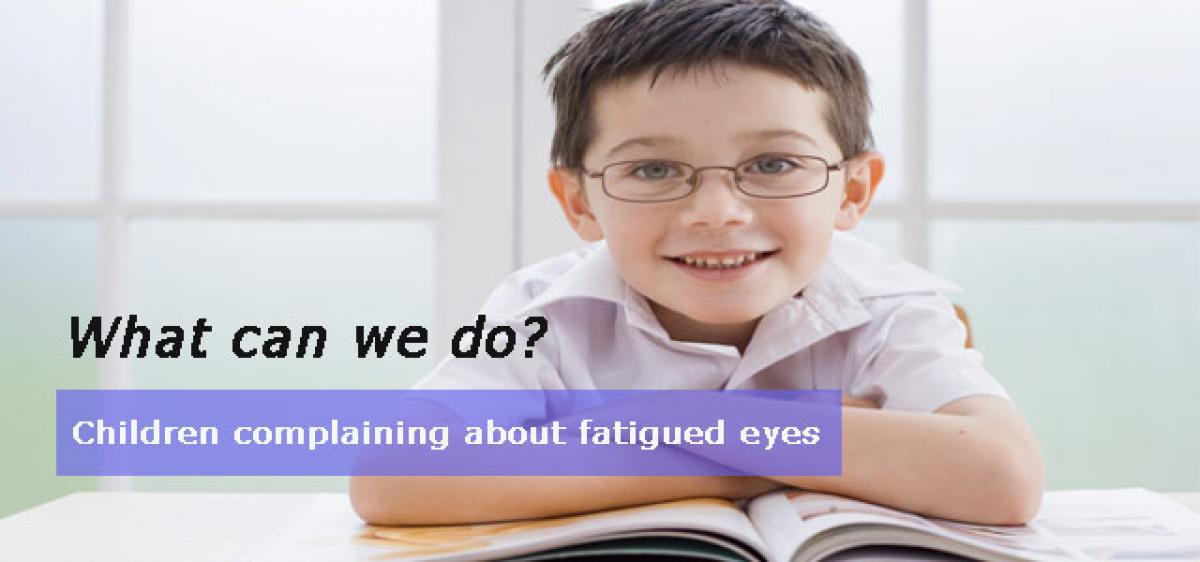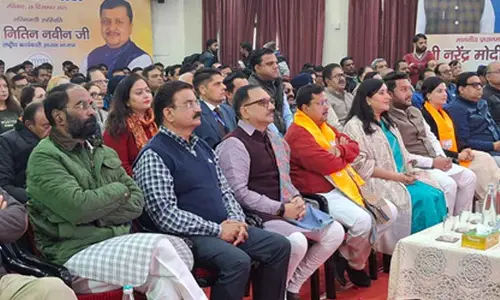How to take care of the eyes!

The dawn of the examination period proves a stressful one for both parents and children alike. Parents predominantly experience mental stress while the children go through a plethora of issues such as stress, anxiety, insomnia, and strain on the eyes.
The dawn of the examination period proves a stressful one for both parents and children alike. Parents predominantly experience mental stress while the children go through a plethora of issues such as stress, anxiety, insomnia, and strain on the eyes.
Children generally complain about strained or fatigued eyes as a result of them constantly poring over their books, or staring into the computer screen.
What can this eye strain lead to?
This eye fatigue may manifest as constant headaches or dryness of eyes. The two contributing factors are the reduced blink rate while gazing at a book/screen and the spasm our muscles experience.
What can we do?
1. Studying in a well-lit room:
Lighting conditions are very important and dim illumination may exacerbate these symptoms. Studying in a well-lit room, when not in a sunlit one, with the ideal posture will save the child a lot of trouble and help him/her concentrate better. The posture will also help to minimize any probability of catching a neck pain or back ache
2.Follow the ‘Rule of 20’:
This very common yet ignored rule states that children should focus on a object 20 feet away, for 20 seconds, every 20 minutes during prolonged near work. This is also a method commonly employed by IT professionals who suffer from Computer Vision Syndrome. This will reduce the continuous pressure on the eyes. Giving regular breaks will ease the dryness of the eyes and reduce spasms in the eye muscle
3.Blink your eyes more often:
When a child complains about dryness of eyes, it is usually due to a reduced blink rate. It is therefore important for a child to consciously blink his or her eyes while studying and take frequent breaks as a stress buster. If the problem continues to persist, then a visit to an ophthalmologist may confirm a dry eye, whereupon suitable lubricating drops would be advised
4.Simple exercise helps:
Exercises like “pencil push-ups” will relieve the strain on the muscles of the eye that help us focus on near objects.
How to do pencil pushups - A pencil is held at arm’s length and brought towards the nose till the image of its tip doubles. The child should hold this gaze for ten seconds and then follow it back to the arm’s length. This cycle has to be repeated several times.
5.For people who wear glasses:
Full-time use of glasses is recommended because if the child already has a refractive error and is infrequently using the glasses, this may be the causative agent for dry eyes and irritation.
6.For people who wear contact lenses:
Older children who use contact lenses, and wear them for a duration longer than advised (which would be more than 12 hours a day) need to reduce contact lens usage. If glasses are not readily available, extended wear contact lenses can be used as an alternative. It goes without saying that the usual hygiene measures for contact lens care must be followed, irrespective of exam time or not.
7.Healthy Nutrition & Lifestyle:
Parents should ensure that the children are on a healthy diet – high in protein and vitamins. This is good for eye health as well as general health. Good nutrition provides fuel for the brain.
8.Reduce screen time:
Since a major chunk of the children’s time is invested in poring over the books, it is advisable to reduce other eye straining activities such as lengthy screen time. To conclude, the above mentioned measures if followed correctly will avoid unnecessary visits to eye doctors and keep the parents & child stress free. Needless to say, adequate sleep is also very important.
By: Dr Vamshidhar
(The writer is Head of Medical Services - Telangana Region, Dr. Agarwal’s Eye Hospital)











